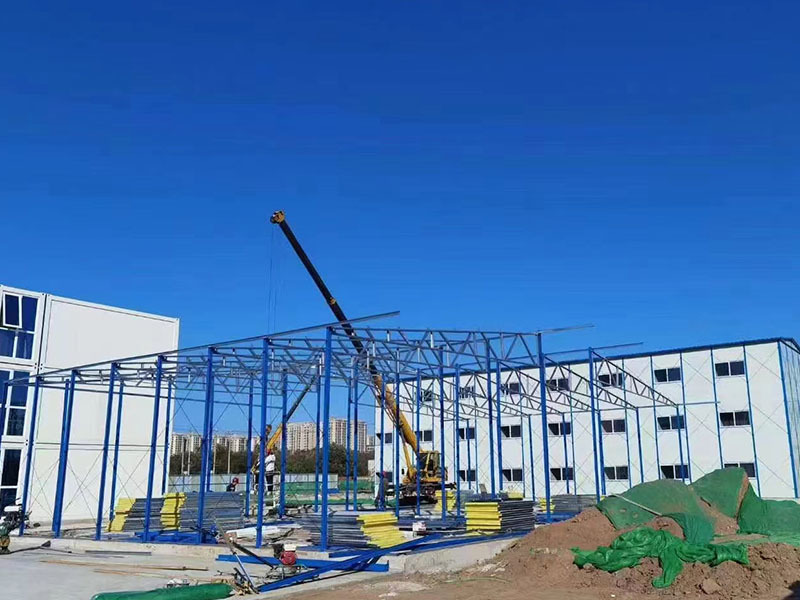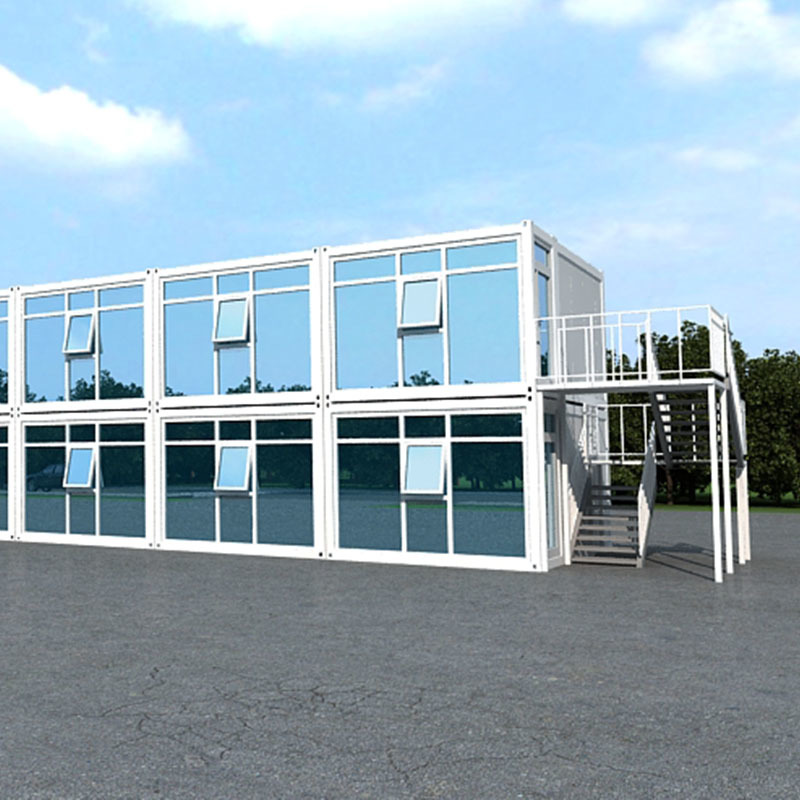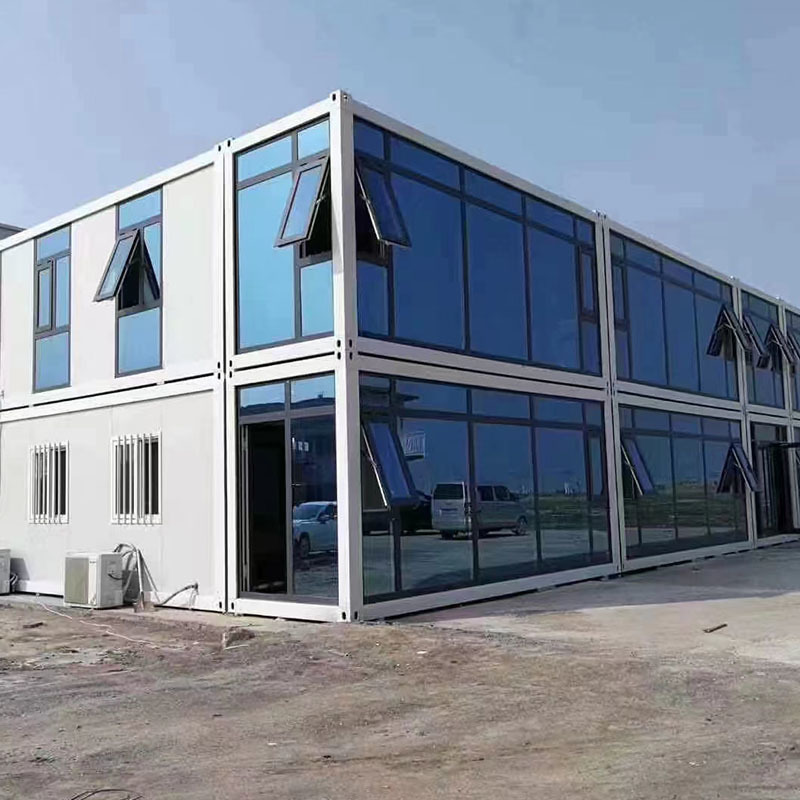Discover the Exceptional Advantages of Steel Modular Buildings for Your Next Construction Project
Release Time:
Jun 24,2025
Discover the Exceptional Advantages of Steel Modular Buildings for Your Next Construction Project Table of Contents 1. Introduction to Steel Modular Buildings 2. What Are Steel Modular Buildings? 3. Benefits of Steel Modular Buildings 3.1 Cost Efficiency 3.2 Speed and Timeliness 3.3 Design Flexibility 3.4 Sustainability
Discover the Exceptional Advantages of Steel Modular Buildings for Your Next Construction Project
Table of Contents
- 1. Introduction to Steel Modular Buildings
- 2. What Are Steel Modular Buildings?
- 3. Benefits of Steel Modular Buildings
- 4. Applications of Steel Modular Buildings
- 5. Comparison with Traditional Building Methods
- 6. Case Studies: Successful Steel Modular Projects
- 7. Frequently Asked Questions
- 8. Conclusion
1. Introduction to Steel Modular Buildings
The construction industry is evolving rapidly, and one of the most significant advancements is the rise of steel modular buildings. As more project managers seek innovative solutions that provide both efficiency and sustainability, steel modular buildings have emerged as a favorable option. This article delves into the numerous benefits they offer and why they should be a key consideration for your next project.
2. What Are Steel Modular Buildings?
Steel modular buildings are pre-fabricated structures constructed in sections, or modules, in a factory setting. These modules are then transported to the construction site, where they are assembled into a complete building. Unlike traditional building methods, which rely on on-site construction, steel modular buildings leverage advanced manufacturing techniques that enhance quality and reduce construction time.
3. Benefits of Steel Modular Buildings
3.1 Cost Efficiency
One of the most compelling reasons to consider steel modular buildings is **cost efficiency**. The controlled environment of a factory setting minimizes waste and ensures the use of high-quality materials, reducing overall project costs. Additionally, the quicker assembly process significantly lowers labor costs, allowing projects to stay under budget.
3.2 Speed and Timeliness
Speed is a critical factor in construction, and steel modular buildings can dramatically shorten project timelines. Since modules are built off-site, site preparation can occur simultaneously, leading to faster completion times. This means projects can be delivered sooner, meeting client deadlines and increasing overall satisfaction.
3.3 Design Flexibility
Steel modular buildings offer exceptional **design flexibility**. The modular approach allows for a variety of configurations and customizations, catering to specific project requirements. Whether you need a simple structure or a complex multi-story building, the adaptability of steel makes it possible. Furthermore, architects and designers can incorporate modern aesthetics without compromising structural integrity.
3.4 Sustainability
In an era where sustainability is paramount, steel modular buildings stand out as an **eco-friendly** option. Steel is recyclable, and modular construction reduces waste by generating minimal debris. Additionally, energy-efficient technologies can be easily integrated into the design, helping to create greener buildings that meet strict environmental standards.
4. Applications of Steel Modular Buildings
Steel modular buildings are versatile and can be applied across various sectors, including:
- **Commercial Use**: Retail centers, office spaces, and restaurants benefit from modular construction's rapid deployment.
- **Residential Home Building**: Modular homes offer an affordable alternative for new homeowners looking for quality and speed.
- **Educational Facilities**: Schools can be built quickly to accommodate growing student populations.
- **Healthcare**: Hospitals and clinics utilize modular buildings to expand services without lengthy construction delays.
- **Industrial**: Warehouses and manufacturing facilities can be erected in record time, optimizing logistics and supply chain efficiency.
5. Comparison with Traditional Building Methods
When comparing steel modular buildings to traditional construction methods, several key differences emerge:
- **Timeframe**: Traditional building processes can take months or even years, while modular buildings often complete in weeks.
- **Cost**: Modular construction generally incurs lower costs due to less waste and quicker assembly.
- **Quality Control**: Factory conditions provide better quality assurance compared to on-site construction, reducing the potential for errors.
This comparison emphasizes the advantages of steel modular buildings, making them a superior choice for many projects.
6. Case Studies: Successful Steel Modular Projects
Numerous projects have successfully implemented steel modular buildings, showcasing their benefits:
- **Project A**: A commercial office space completed in just three months, saving significant time and costs compared to traditional methods.
- **Project B**: A school built rapidly to accommodate an influx of students, demonstrating the flexibility and speed of modular construction.
- **Project C**: A healthcare facility that combined modular and traditional building techniques, offering a sustainable solution while meeting pressing community needs.
These case studies illustrate the practical applications and efficiency of steel modular buildings across diverse industries.
7. Frequently Asked Questions
What is the lifespan of a steel modular building?
Steel modular buildings have a lifespan comparable to traditional structures, often exceeding 50 years with proper maintenance.
Are steel modular buildings safe?
Yes, steel modular buildings adhere to all safety regulations and building codes, ensuring structural integrity and occupant safety.
Can I customize a steel modular building?
Absolutely! Steel modular buildings are highly customizable, allowing for various designs and layouts to cater to specific needs.
How do steel modular buildings perform in extreme weather?
Steel is an incredibly durable material. Modular buildings are designed to withstand various weather conditions, including high winds and heavy snowfall.
Are steel modular buildings environmentally friendly?
Yes, steel is recyclable, and modular construction significantly reduces waste compared to traditional methods, making it an eco-friendly option.
8. Conclusion
In summary, steel modular buildings represent a modern solution for construction projects seeking efficiency, customization, and sustainability. Their cost-effectiveness, rapid deployment, and versatility make them an attractive choice for various applications, from commercial spaces to residential homes. As the construction industry evolves, embracing innovative building methods like steel modular construction will ensure that projects meet contemporary demands while achieving exceptional quality and performance. By choosing steel modular buildings for your next project, you are not only investing in a durable structure but also contributing to a more sustainable future.
Key words:
What Else Might You Learn?










